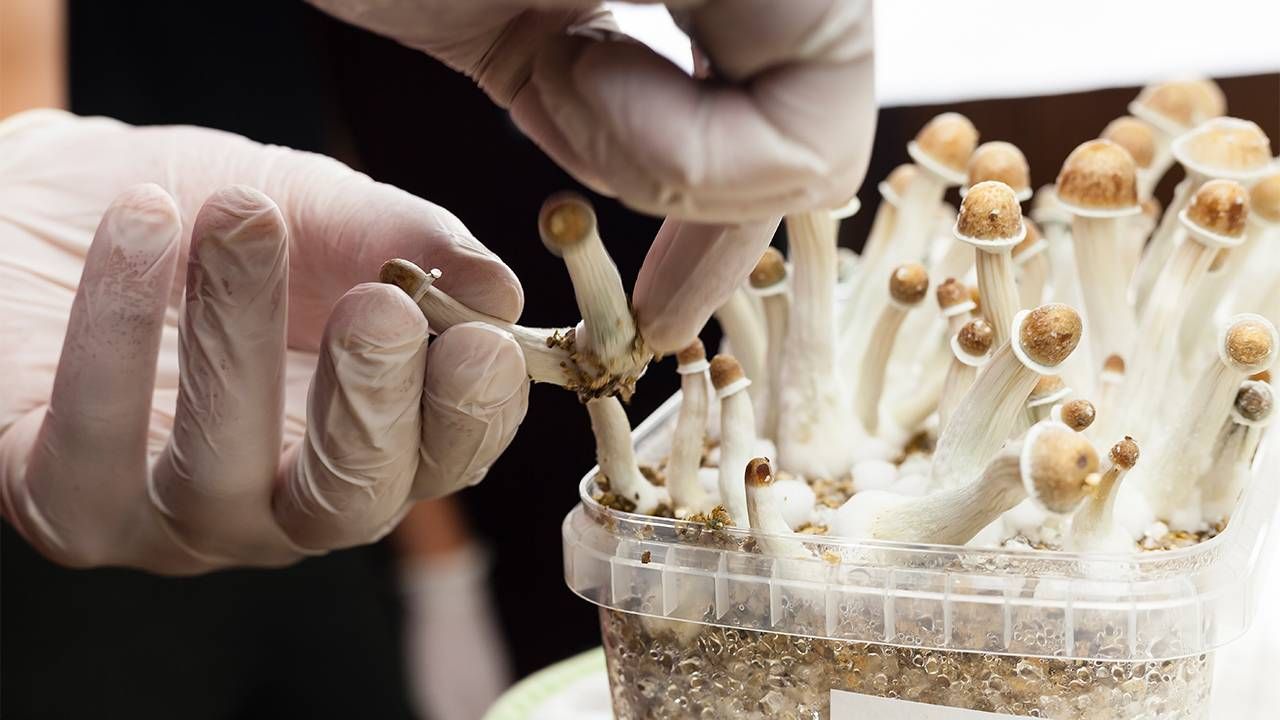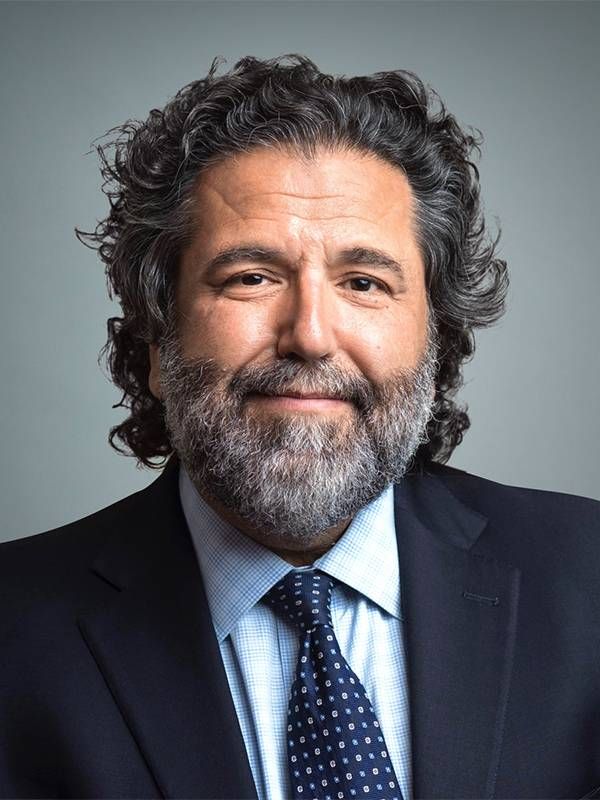How Psychedelic-Assisted Therapy Can Help Ease End-of-Life Anxiety
According to a noted NYU professor of psychiatry, clinical trials show the calming effects of psilocybin can be transformative and enduring
A diagnosis of cancer or any other serious disease can be psychologically devastating. And while physical suffering can be managed with palliative care, there are currently few options for relieving a patient's existential pain. Yet promising findings from an experimental form of therapy using psilocybin, the "magic" compound in magic mushrooms, suggest that situation may soon change.

In the next few years, the FDA will consider whether to approve psychedelic-assisted therapy for certain intractable mental health conditions, including the depression experienced by the terminally ill. Prohibited under the controlled substance act, for now, psychedelic-assisted therapy is only accessible by participating in a clinical trial.
Dr. Anthony P. Bossis, a professor of psychiatry at NYU Grossman School of Medicine and palliative care specialist, has been closely involved in these trials, and is the co-principal investigator of a landmark 2016 study that found profound and long-lasting improvements in the mental wellbeing of cancer patients who received a single dose of psilocybin.
I corresponded with Bossis, who shared the insights, wonder and humility he has experienced as part of this work.
Abbie Rosner: How does a psychedelic experience alter a person's attitudes about death? Do the effects dissipate after the drug has worn off?
Dr. Anthony P. Bossis: While the findings from our clinical trials point to many aspects that help patients cope with a life-threatening illness, we've known from palliative care research that meaning-making and transcendence enhance emotional well-being in persons at the end of life.
"One of the novel features of psychedelics is that the medicine is taken only once or twice, but it is the memory of the experience that appears to have therapeutically beneficial effects."
For some, the transcendent states of consciousness generated by psilocybin offer an opportunity to identify not solely with the failing body, but instead, to identify with something more enduring. This can provide a unique opportunity for challenging prior assumptions and cultivating new perspectives on the nature of self, the body, or death. The insight that 'I am not only this body' or 'I am not this cancer' offers profound transformative possibilities.
Other therapeutic effects include a greater sense of equanimity, gratitude for their relationships, an enhanced sense of love and forgiveness towards self and others, appreciation of time living, and a greater acceptance to the mystery of death.
One of the novel features of psychedelics is that the medicine is taken only once or twice, but it is the memory of the experience that appears to have therapeutically beneficial effects. The biological effects of psilocybin last roughly six to eight hours, but the insights and therapeutic effects from the subjective experience have been shown to endure for months after the experience.
Assuming that every participant's experience is unique, are there also common themes that arise?
It's true that every person's subjective experience is unique. It is largely dependent on what is called set and setting, the set being the mindset, personal history, and intentions of the person taking the drug and the setting being the social, cultural, and physical context in which the psychedelic is taken.

Experiences are greatly varied. They can be aesthetic in nature, autobiographically oriented, or have the features of what is called a mystical experience, which has been shown since the early research from half a century ago to be an integral factor of the most positive therapeutic and beneficial outcomes.
Subjective features of a mystical or peak experience are a sense of unity, transcendence, sacredness, ineffability, and deeply felt positive emotions. Both NYU and Johns Hopkins studies found the mystical experience to be a mediating factor and predictor in enduring changes in outcome measures, including anxiety and depressive symptoms.
Does a person's religious orientation influence if they have a spiritual experience?
That's an interesting question. While the psychedelic experience is often described as spiritual or existential in nature, in our NYU trial, we found no significant difference between those with a spiritual faith or religious background versus those without a religious or spiritual orientation regarding the occurrence of mystical experience or positive outcomes.
Approximately half of the participants reported some organized religious faith and roughly half were self-described as atheist or agnostic. When compared, neither significantly interacted with the outcome measures.
What percentage of participants report meaningful and lasting improvements after the therapy?
Of the cancer patients from the Johns Hopkins and NYU trials, approximately seventy percent rated the psilocybin experience as among the five most meaningful experiences of their lives, including the single most meaningful experience. In our NYU study, over half of the participants rated the psilocybin experience as among the top five most spiritually significant experiences.
Together, the 2016 NYU and Johns Hopkins studies included eighty cancer patients with approximately eighty percent of the patients demonstrating decreases in anxiety, depression, and measures of existential distress with these improvements sustained at a minimum of six months.
"Of the cancer patients from the Johns Hopkins and NYU trials, approximately seventy percent rated the psilocybin experience as among the five most meaningful experiences of their lives."
In a follow-up study at NYU conducted four and a half years later, sixty to eighty percent of the surviving participants continued to show sustained reductions in depression, anxiety, hopelessness, demoralization and improvements in general well-being while contending with cancer.
How was it for you as a therapist to be part of this process?
Working with people in this research and at the end of life has been a profoundly emotional and important experience. It is a privilege to bear witness to these experiences and the journey these participants are on.
Much of the psychedelic experience in these studies is recalibrating suffering—moving into suffering — and by doing so, having it transformed with new and positive insights. Which is a powerful lesson. It is deeply spiritual.
So often in the profession of medicine, there is the focus to 'fix or do something.' These participants and their experiences have been the greatest teachers in the lesson of 'just being' with and supporting the unfolding experience which is indeed doing a great deal.
Grief and suffering are in all our lives and it has helped me to turn toward the grief in my life as well, and to accept it as an integral part of being human. As is unknowing. I have incredible gratitude for the courageous volunteers in our studies and for this opportunity. And I have been changed by it.

